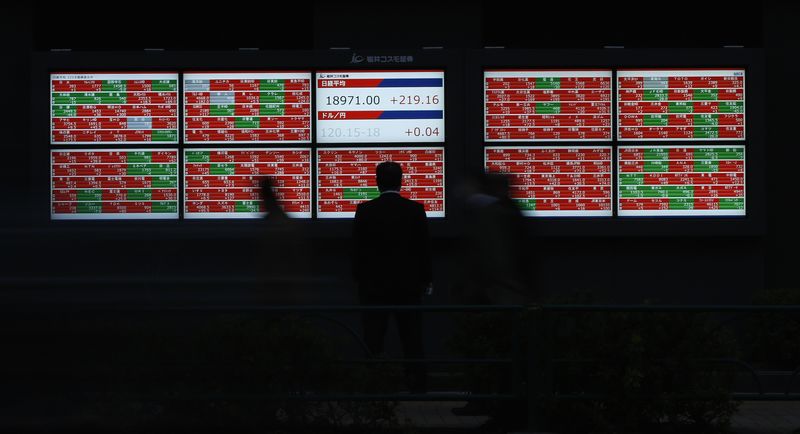By Hideyuki Sano
TOKYO (Reuters) - The prospects of higher U.S. interest rates buoyed the dollar but also kept share prices in many countries in check on Thursday, with Asian stocks hovering around seven-week lows.
The dollar's index against a basket of six major U.S. trader partners hit a 12-year high of 99.985 on Wednesday and last stood at 99.689. (DXY) <=USD>.
MSCI's broadest index of Asia-Pacific shares outside Japan (MIAPJ0000PUS) was up 0.1 percent in early Asian trade but still not far from seven-week low hit the previous day.
Japan's Nikkei (N225) rose 0.4 percent, bolstered by hopes of buying from public investors such as the government's pension fund.
Surprisingly strong U.S. employment data published on Friday fueled expectations that the Federal Reserve may raise interest rates as soon as in June, though some investors and analysts fear the economy is still not resilient enough to cope with even marginally higher borrowing costs.
In contrast, the European Central Bank started its 1 trillion euro bond buying program, unveiled in January, this week.
The policy divergence prompted many market players to shift funds to higher-yielding U.S. dollar from euro.
The euro fell to a 12-year low of $1.0511 on Wednesday and last stood at $1.0546
The common currency has fallen 4.8 percent in the past five sessions -- a scale of decline that the currency did not see even in rough times during the European debt crisis in 2011-12.
The sharp fall in the euro is boosting shares in euro zone shares, with major stock indexes for Germany (GDAXI), France (FCHI) and Italy (FTMIB) all rising more than 2 percent on Wednesday.
In contrast, the dollar's strength undermined U.S. shares on concerns it would erode earnings for multinationals. The S&P 500 Index (SPX) fell 0.2 percent to a one-month low.
The dollar's strength and the specter of higher U.S. rates also unsettle many emerging markets that have benefited from funds escaping low yields in the United States.
Indeed, currencies such as the Turkish lira
"We should take note of the risk that emerging currencies could fall further. ... Some emerging countries are running current account deficit and their currencies fall would be negative for risk asset markets," Makoto Noji, senior strategist at SMBC Nikko said in report.
U.S. crude prices

The European benchmark Brent